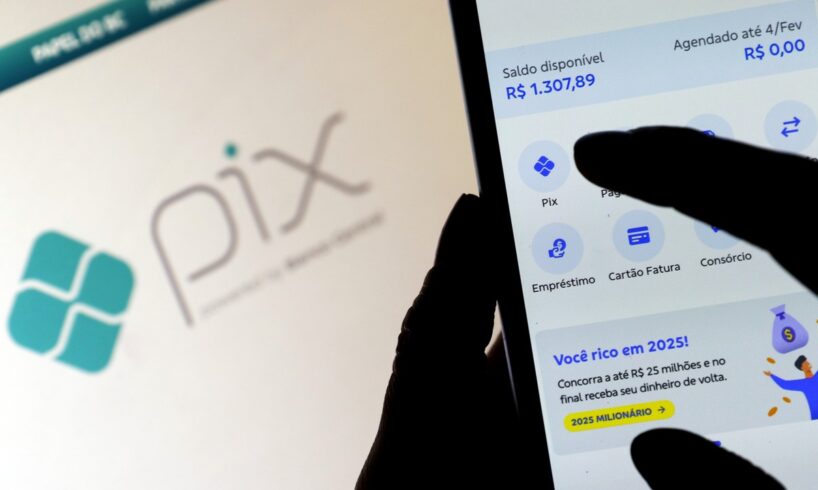
Since its launch in 2020, Brazil’s instant payment system Pix has saved consumers and businesses a total of R$106.7 billion by replacing more expensive payment methods such as TED bank transfers and debit cards, according to a study by the non-profit Movimento Brasil Competitivo (MBC). The research measured Pix’s direct financial impact on the Brazilian economy.
Between January and June 2025 alone, Pix generated R$18.9 billion in savings—exceeding the R$15.3 billion recorded in the same period last year and nearly four times the R$4.9 billion saved in the first half of 2021, the first year of the survey. If adoption and replacement trends continue, annual savings could reach up to R$40.1 billion by 2030.
“We were estimating that for 2030, but I think it will happen sooner—in the coming years it’s possible to save around R$40 billion, in amounts that would otherwise be spent on fees,” MBC economist Rodolpho Tobler told Valor.
On a yearly basis, savings have nearly tripled, from R$11.9 billion in 2021 to about R$33 billion in 2024. “The estimate is to exceed R$35 billion this year,” Mr. Tobler added. He noted that new features such as Pix Garantido and installment payments, which were not included in the study, could further increase annual savings.
The analysis focused on two main effects: replacing TED transfers and increasing payments from individuals to businesses in place of debit card transactions. Using public data from the Central Bank, the calculation compared the average costs of these payment methods and applied the difference to the actual volume of transactions from October 2020 to June 2025.
The study estimated how much would have been spent if the population had continued using more expensive options, and compared it with what was actually paid using Pix—which is free for individuals and microentrepreneurs. The difference represents the real savings generated by the technology.
Beyond reduced fees, the report also cited indirect effects such as encouraging small-business formalization, expanding access to banking services, and reducing cash usage.
“Savings occur at all business levels, but small companies benefit the most, as they often were outside the banking system before Pix,” said Mr. Tobler. He added that, in addition to driving formalization, Pix has lowered operating costs. “It can even lead to lower product prices and operational expenses. If it weren’t for persistent inflation pushing prices up month after month, savings could have been even greater.”
Following the 50% tariff hike on Brazilian imports announced by U.S. President Donald Trump last month, Washington opened an investigation into alleged “unfair trading practices” in Brazil. Among the targets is Pix, which the U.S. claims has hurt the profitability of U.S.-based card networks such as Visa and Mastercard.
On the matter, Mr. Tobler dismissed the criticism. “It’s natural for companies that once dominated the market to see some erosion in their margins, but I don’t think R$106.7 billion in accumulated savings over this period is enough to trigger a global problem. And Brazil isn’t the only country with this payment innovation.”
The MBC study also reviewed similar systems abroad, including India’s UPI, Sweden’s Swish, and the UK’s Faster Payments Service (FPS), to compare operating and governance models. Unlike Brazil, most countries separate regulation and operation. Currently, Pix is both operated and regulated by the Central Bank.
According to Mr. Tobler, as Pix’s functions expand, operating the system could eventually strain the Central Bank. “What we’ve seen elsewhere, in terms of governance, is the creation of a public company to run the payment system. That’s something that could be discussed in the future,” he said.





